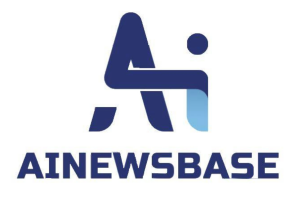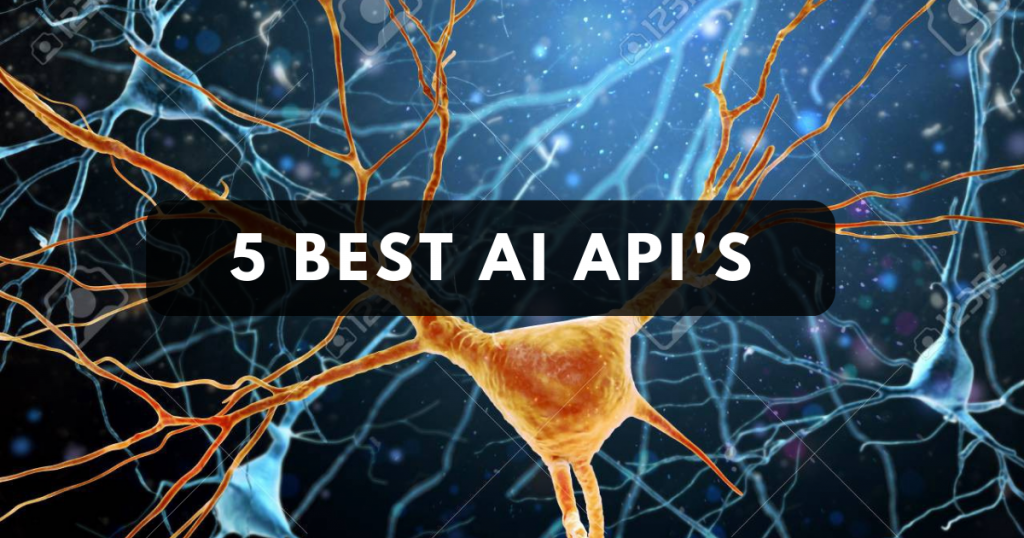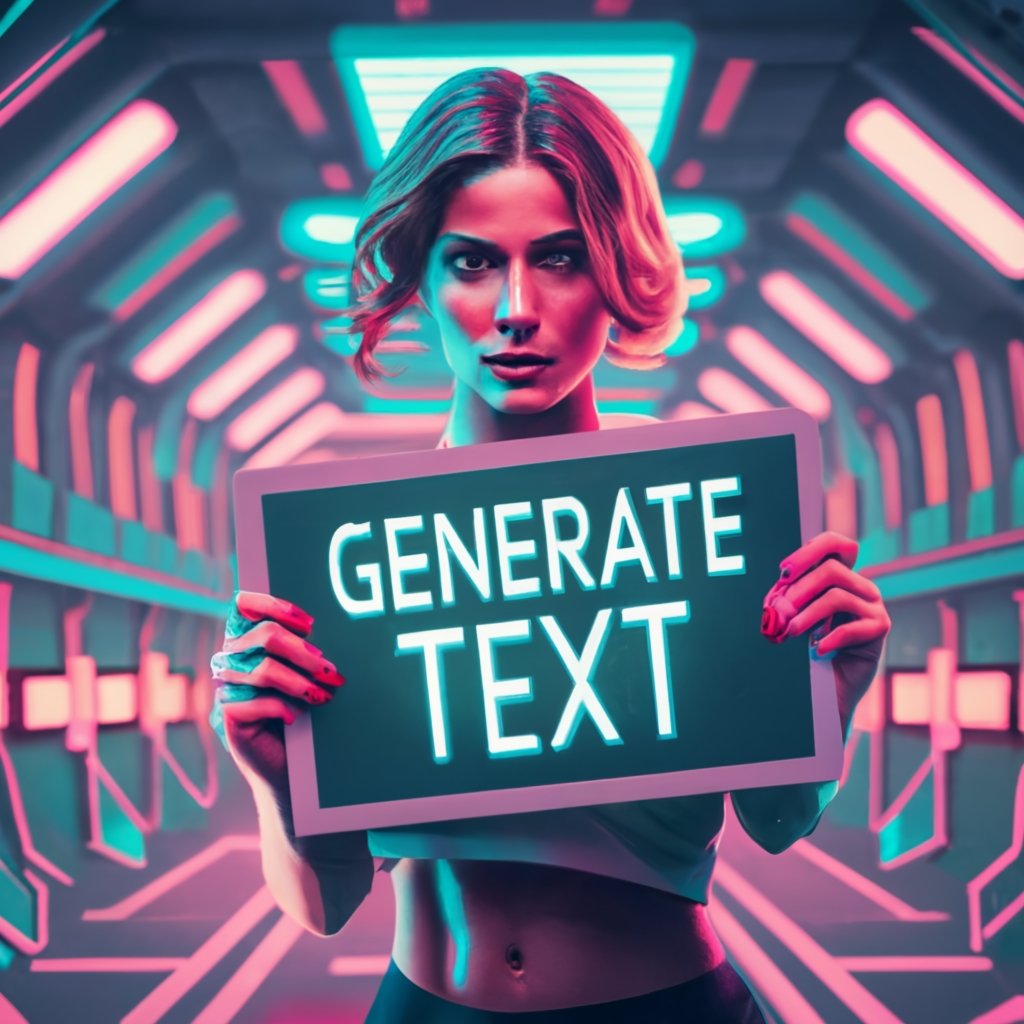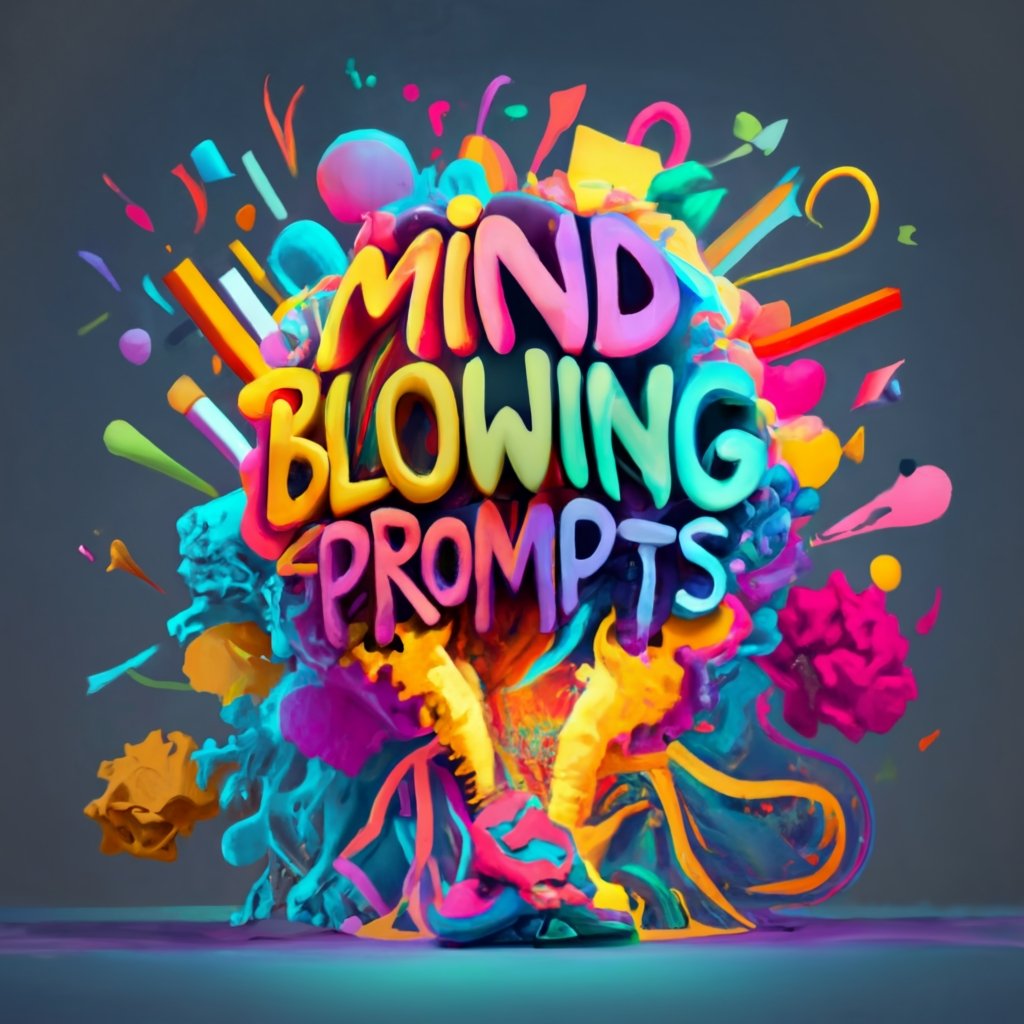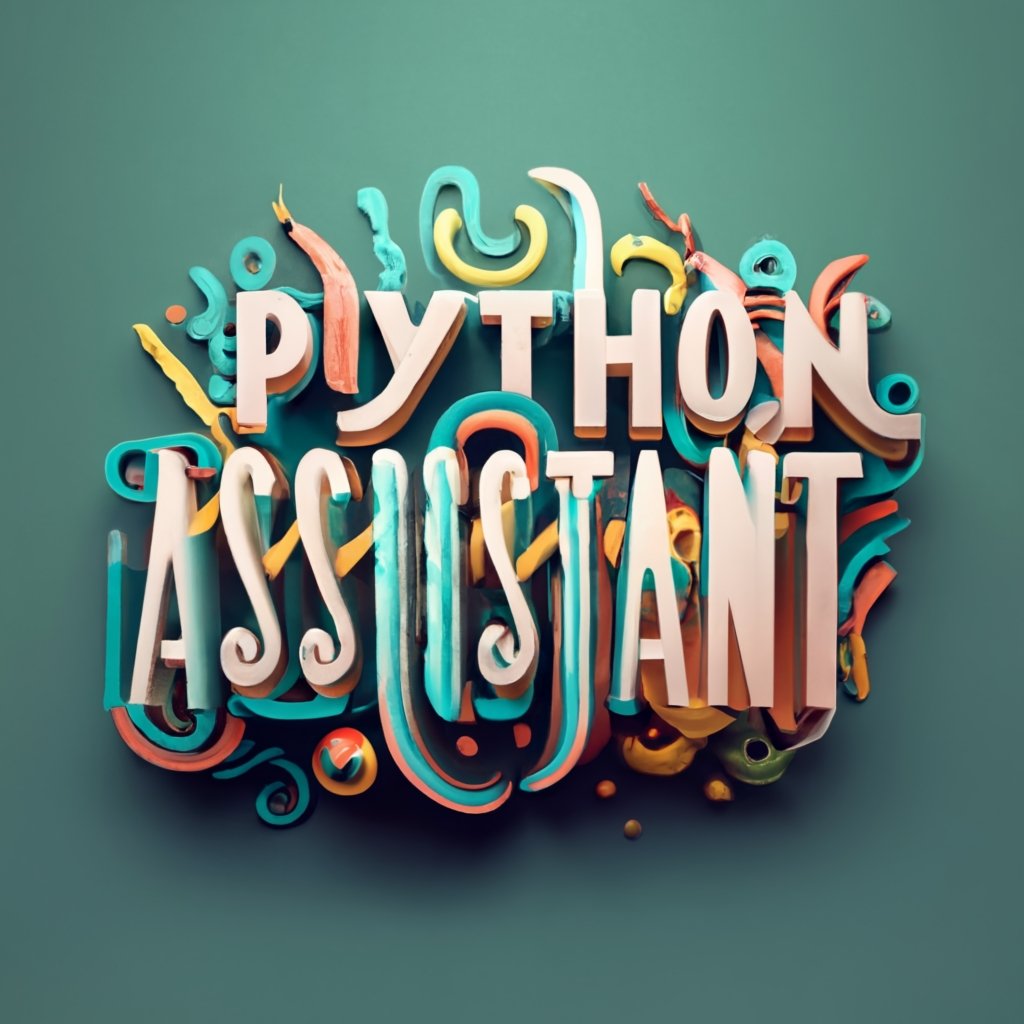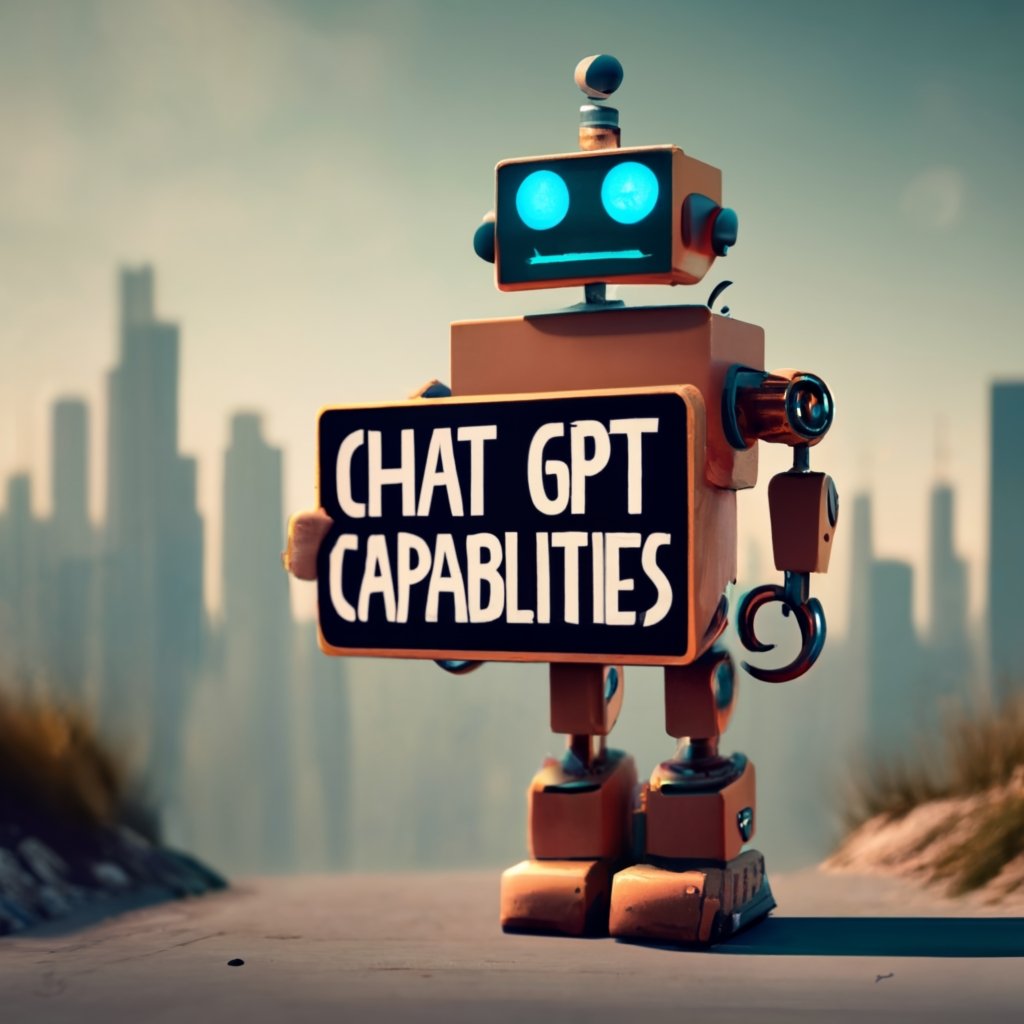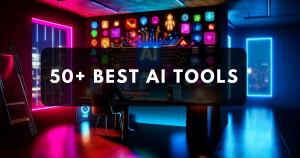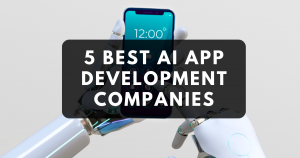5 Best AI API Platforms to Build Your Own AI Application
View 50+ Best AI Tools 2023
Building an AI powered tool is easier than you think.
Billions of dollars have been invested into training machine learning algorithms. Countless data points from the web have been analysed by companies like OpenAI & Google. They’ve developed truly unique artificial intelligence bots and tools.
But their platform, research and AI systems can also be used and applied by anyone else using API’s.
What is an API? Explained Like I’m 5
An API is like a waiter in a restaurant. Imagine you’re in a restaurant and you want to order some food. You can’t just go into the kitchen and cook it yourself, so you ask the waiter to bring you what you want. The waiter then goes to the kitchen and talks to the chef to make your food.
In the same way, an API helps two different computer programs talk to each other. One program wants some data or wants to do something, but it can’t do it itself so it asks the API to help. The API then talks to the AI database and either fetches the data or gets performs a task.
Think of an API like a waiter and you can order whatever you want!
Best Artificial Intelligence API Platforms

1. OpenAI
OpenAI is the artificial intelligence platform behind the content generator ChatGPT and text to image generator, DALL-E
OpenAI have been collecting, categorising and making sense of data since 2015. Basically translating information in a way that a computer can understand.
Their main areas of focus are text content generation, text to image generation, and automatic speech recognition.
OpenAI was launched in December 2015 by a group of high-profile tech leaders, including Elon Musk, Sam Altman, Greg Brockman, Ilya Sutskever, and Wojciech Zaremba. The company was founded with the goal of promoting and developing friendly AI that benefits humanity.
OpenAI initially focused on researching and developing advanced AI technologies, such as deep learning and reinforcement learning. The company released a number of influential research papers and open-source tools, which helped to advance the field of AI and made it more accessible to developers and researchers.

They have an API for each of these tools that you can use as the backbone of an AI tool for your own specific use case.
OpenAI GPT-3: This is a state-of-the-art language model that can perform a wide range of natural language processing tasks, such as text generation, translation, summarization, and question answering.
OpenAI DALL·E: This is an image generation API that can turn textual descriptions into original, high-quality images.
OpenAI Codex: This is a knowledge-based AI system that can answer questions, provide explanations, and complete tasks based on a large corpus of text.
OpenAI CLIP: This is a vision and language model that can understand the relationships between images and text, making it suitable for tasks such as image captioning, visual question answering, and text-to-image synthesis.
These APIs can be used in a variety of applications, including chatbots, content creation, customer service, and e-commerce. By leveraging OpenAI’s cutting-edge AI technology, developers can build more intelligent and engaging applications that provide better experiences for users.

2. Google
Google are actively using AI to revolutionise the way we experience searching the web. Many people are blissfully unaware that they've been using it for years, however they're preparing to scale it up to the next level.
Google are in the process of launching an AI language model that operates on top of Google search. They’re calling it Bard.
The launch of Bard, which in Celtic cultures, a bard is a professional story teller, verse-maker, music composer, oral historian and genealogist, is being hurried along in an effort to compete against Microsoft.

Google offers a wide range of AI APIs that can be used for a variety of purposes. Here are a few of the most popular AI APIs offered by Google:
Natural Language API: This API provides advanced natural language processing capabilities, such as sentiment analysis, entity recognition, and syntax analysis.
Cloud Vision API: This API provides image recognition and analysis capabilities, such as object detection, landmark recognition, and OCR (optical character recognition).
Cloud Speech-to-Text API: This API enables developers to convert spoken audio into text in real-time.
Cloud Text-to-Speech API: This API allows developers to convert written text into spoken audio, which can be used in a variety of applications, such as voice assistants, podcasts, and audio books.
Cloud Translation API: This API provides automatic language translation capabilities, enabling developers to build applications that can translate text from one language to another.
AI Platform: This is a comprehensive platform for developing and deploying machine learning models, providing access to a wide range of Google AI technologies, including TensorFlow and AutoML.
These APIs can be used in a variety of applications, such as chatbots, content creation, customer service, and e-commerce, and they provide developers with powerful AI capabilities that can be integrated into their applications with just a few lines of code.
3. Microsoft Azure
Microsoft Azure, is a cloud computing platform operated by Microsoft that provides access, management, and development of applications and services via around the world-distributed data centers.
Although Microsoft recently announced a Multi-Billion Dollar investment into OpenAI, they’re also working on a platform of their own.
Microsoft Azure is the platform on which their highly anticipated Bing Search tool is built upon. Since announcing it in February 2023, downloads of the Bing Search App jumped 10x!
We’re witnessing perhaps the biggest race between big tech companies, all fighting to get in the lead for AI powered search.
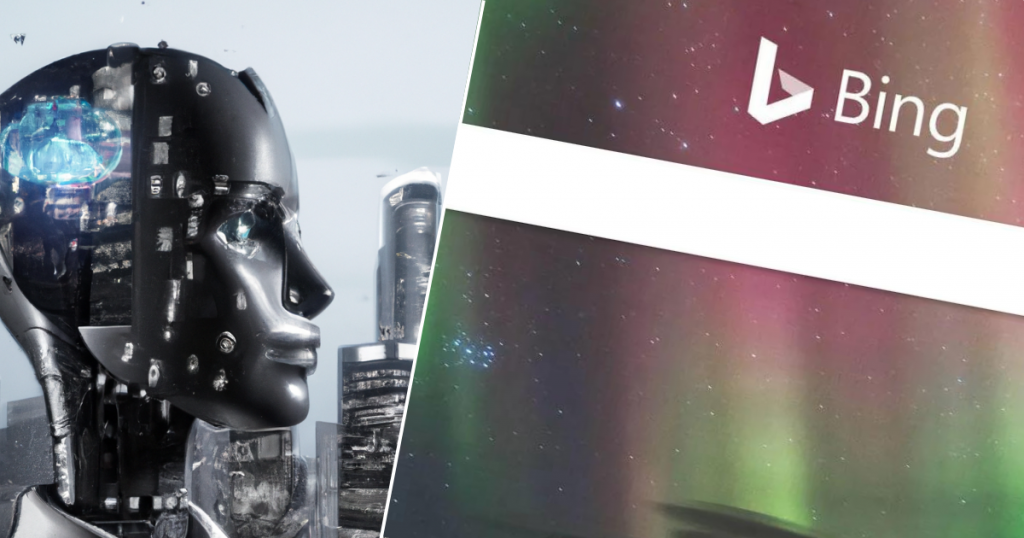
Microsoft have a range of different API’s available for businesses to utilise their vast artificial intelligence models into a variety of products and applications:
Microsoft Azure Cognitive Services: This is a collection of pre-built AI models and services that can be used for tasks such as text analysis, speech recognition, computer vision, and language understanding.
Microsoft Power Platform: This is a low-code platform for building business applications, including custom connectors, workflows, and AI models, without requiring extensive programming knowledge.
Microsoft Bot Framework: This is a framework for building conversational bots and chatbots, and it provides a range of APIs and tools for integrating bots into a variety of platforms, including Skype, Slack, and Teams.
View 50+ Best AI Tools 2023
4. Amazon Web Services
Amazon have been using AI to help power their shopping experience for customers. From suggesting products it thinks customers need, to eliminating the need for a checkout in retail stores.
Everything you search for, click on, read or do on Amazon is fed into its machine learning system in order to better predict what to show you next. They’ve been fine tuning what makes a successful artificial intelligence database for years.
Amazon fulfilment centres also utilise the power of AI. Not only have they been deeply invested in developing their own platform, but they’ve acquired a huge number of AI centred companies over the past few years, putting their hands on an even larger data set.
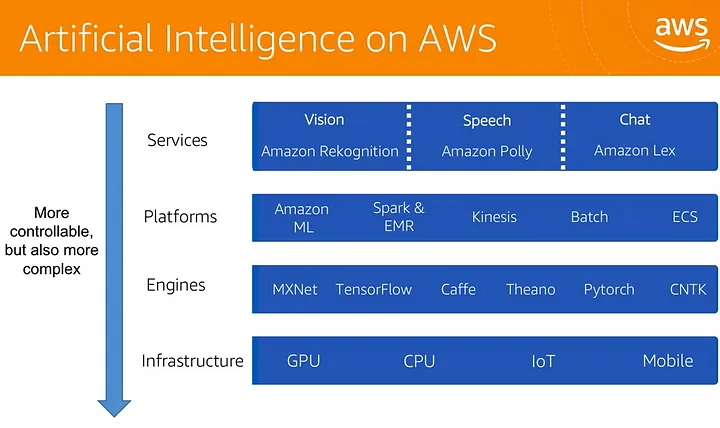
Amazon Web Services (AWS) offers a range of AI APIs and services that can be used for a variety of purposes, including natural language processing, computer vision, and machine learning. Here are a few of the most popular AI APIs offered by AWS:
Comprehend: This is a natural language processing service that can be used for tasks such as sentiment analysis, entity recognition, and topic modeling.
Rekognition: This is a computer vision service that can be used for tasks such as image recognition, face detection, and object tracking.
SageMaker: This is a machine learning service that provides a complete development and deployment environment for building, training, and deploying machine learning models.
Lex: This is a service for building conversational interfaces, such as chatbots and voice assistants, using natural language processing and machine learning.
Polly: This is a text-to-speech service that can be used to convert written text into spoken audio, which can be used in a variety of applications, such as voice assistants, podcasts, and audio books.

5. IBM Watson
Incorporate conversation, language, and advanced text analytics into your apps Watson APIs make it easy to incorporate conversation, language, and advanced text analytics into your applications.
IBM recently introduced a new AI supercomputer called Vela, which is made up of virtual machines operating within the IBM Cloud. This supercomputer is designed specifically for AI and is the first of its kind to be cloud-native. It was created with the goal of developing and training large AI models.
At present, Vela is only available for use by the IBM Research community and is considered the company’s primary environment for researchers who are working on creating advanced AI capabilities. Since May of 2022, Vela has been the go-to platform for researchers conducting work on fundamental AI models.
Although they’ve been quiet on their supercomputer, IBM have been offering their AI API for public use for a number of years.
- Health Prediction API’s
- Store Inventory API’s
- Agricultural recommendations
- Geocoding and search API’s
Best AI API Platform to Use
Figuring out which AI API platform to use entirely depends on your goals. AI is a broad sector, with many different possible applications. If you’re going to be developing a text based, generative tool, OpenAI would be a good starting point. If you’re looking at developing a tool to understand and transcribe speech, we’d recommend Amazon’s platform.
The above article should give you enough information about the various areas each of the different AI API platforms are strongest in.
Help Using Artificial Intelligence API's
Developing your own AI powered tool, of course requires some level of technical knowledge. Implementing API’s requires some level of coding experience. Even though AI chatbots are getting very good at writing code, they’re not yet perfect and some level of human input is still required.
If you need help however, there are a number of companies out there specialising in API implementation.
If you’re struggling to find a suitable company, you can email us at contact@ainewsbase.com. We’ve developed a number of tools and applications and have a growing network of developers we would happily put you in touch with.
Be careful and be wary of scammers, as with anything on the internet. Never pay everything up front, and be sure to ask for past examples of work.
